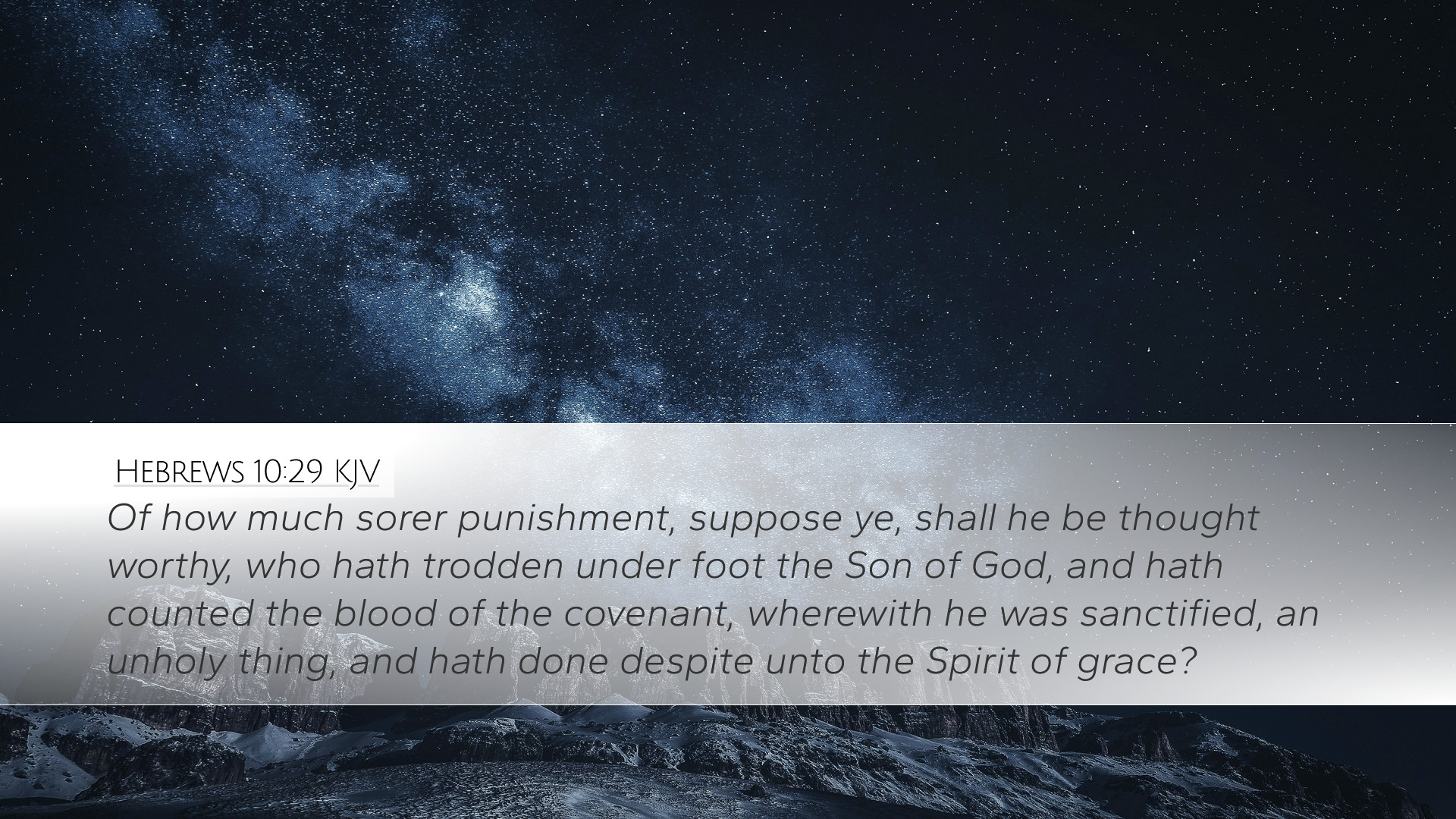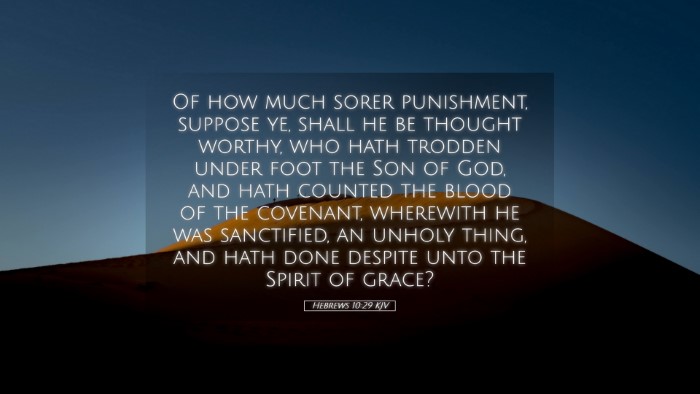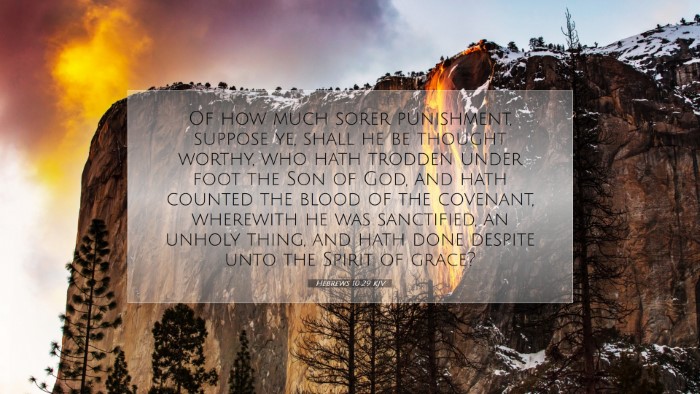Hebrews 10:29 Commentary
Verse: "Of how much sorer punishment, suppose ye, shall he be thought worthy, who hath trodden under foot the Son of God, and hath counted the blood of the covenant, wherewith he was sanctified, an unholy thing, and hath done despite unto the Spirit of grace?"
Introduction
This verse serves as a formidable warning against apostasy, emphasizing the grave consequences of rejecting Christ after receiving the knowledge of the truth. The author of Hebrews appeals to the severity with which God treats those who abandon their faith in the face of His grace and sacrifice.
Contextual Background
The Book of Hebrews is traditionally seen as a letter directed to Jewish Christians who were tempted to revert back to Judaism due to persecution and societal pressures. The central theme of Hebrews is to exalt the superiority of Christ and the new covenant over the old covenant. In chapter 10, the author discusses the sacrificial system, Christ's ultimate sacrifice, and the finality of His atonement, leading to a stark warning in verse 29.
Commentary Insights
Comparison with Old Covenant Punishments
Matthew Henry notes a comparison between the punishment for transgressing the law of Moses and the punishment for those who reject the gospel. He asserts that if the consequences were severe under the old system—where disobedience was met with temporal judgement—how much more severe will be the punishment for those who explicitly turn their backs on the gospel of grace.
The Nature of the Offense
Albert Barnes elucidates the nature of the sins mentioned in this verse. The act of "treading under foot the Son of God" signifies a willful and contemptuous rejection of Christ, viewing His sacrifice as trivial or unimportant. By counting the blood of the covenant as an unholy thing, the transgressor indicates a severe underestimation and disrespect for the sanctifying power of Jesus’ blood, which is of ultimate worth.
Understanding Grace
Adam Clarke emphasizes the gravity of "despite unto the Spirit of grace." This phrase suggests a deep-rooted contempt not merely for the act of sin but for the very grace that enables repentance and forgiveness. Clarke underscores that to willfully sin after knowing the fullness of grace is not just a moral failing but a grievous affront to the Holy Spirit, who works in believers to bring them to repentance.
Theological Implications
This verse raises critical theological questions about the perseverance of the saints, the nature of grace, and the potential for falling away. It suggests that while grace abounds, it should not be taken lightly, and there exists a balance between divine mercy and divine justice.
The Severity of Apostasy
The apostasy described in this verse illustrates what engages the heart of God and the necessity for believers to hold steadfastly to their confession of faith. It instills a sense of urgency in the reader, urging them to consider their standing before God and the seriousness of their commitment.
Lessons for Modern Believers
This admonition is not only relevant for the early Christians but also resonates deeply with modern believers. The continual grace offered through Christ should be met with reverence and a commitment to holiness. There is a call for vigilance, a reminder that continual engagement with God’s word and community support is essential to persevere through trials.
Conclusion
In summation, Hebrews 10:29 stands as a powerful exhortation against willful disobedience and neglect of the gospel's grace. It calls believers to maintain a sincere faith, thoughtfully consider the ramifications of their spiritual engagements, and appreciate the value of Christ's sacrifice—an invaluable theme within the Christian faith.
Reflection Questions
- What does this verse teach us about the weight of sin in light of Christ's sacrifice?
- How can we cultivate a deeper respect for the grace of God in our daily lives?
- In what ways can we help fellow believers who may be struggling with doubt or temptation to return to old paths?


